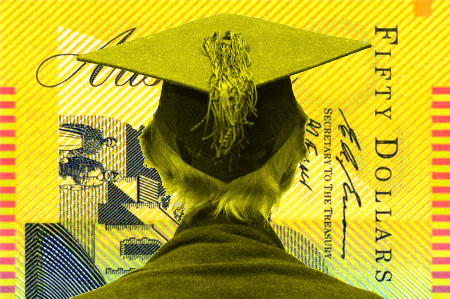Unique court case hears bold claims
 The ACCC’s legal case against the training group Unique International College continues this week.
The ACCC’s legal case against the training group Unique International College continues this week.
The federal court has been told that the owner of Unique International allegedly signed up illiterate, disabled Aboriginal students for tens of thousands of dollars worth of debt in exchange for barely-delivered training.
Amarjit Singh, owner of Unique International College in Granville, claimed in court that he was “giving the gift” of education to the 3600 students he signed up for the loans.
The court then heard he transferred $22 million to his family's account in a single day.
It was alleged that the 3138 students did not complete a single unit of any of the college's management or marketing courses, which cost taxpayers over $47 million in VET FEE Help student loans.
“We are a genuine education provider,” Singh said.
“I know education can change peoples' lives.”
The Australian Competition and Consumer Commission alleges that many of the public loans worth up to $25,000 each will never be repaid.
Acting for the ACCC, Norman O'Bryan SC alleged that Mr Singh's college worked hard to maximise the number of students enrolled in the “spectacularly profitable business” he described as “unique in more ways than one”.
“The only gifts that changed peoples lives are the gifts you gave [to your family] of the millions of dollars of profit you earned,” said Mr O'Bryan.
Mr O'Bryan said Mr Singh was “pouring money into the pockets of his family”, through “a serious manipulation of public revenue”.
“The actual harm is a harm done to the nation,” he said.
“You didn't care less whether your supposed students were communicating with their trainers."
Mr Singh denied the allegations and said he was concerned about his students’ 6.5 per cent completion rate.
The college allegedly expanded from 398 students to more than 3000 a year later.
“It increased nine-fold,” said Mr O'Bryan.
“But [Mr Singh] doesn't need to put on many more staff at all.”
Mr Singh said the staff he did have believed in his passion for education.
“I am not saying that I am 100 per cent satisfied, but I am willing to work together with the industry and the department, within the VET sector, to continue to improve,” he said.
“It's a learning curve for everyone, for the Department of Education as well,” he said.
Mr O'Bryan said the college's expenses did not match its “truly extraordinary” revenue, and there was no evidence that staff had engaged in meaningful training.
Mr Singh said he only heard the claims that his wife and other family members were offering “free laptops” in Aboriginal missions through the media.
“It was very sad to see myself on the front page of a paper with so much negative commentary,” he said.
Mr O'Bryan put it to Mr Singh that he had deliberately hired Aboriginal employees to market Unique's courses in order to be access Aboriginal missions in Bourke, Taree and Walgett.
Mr Singh said he was “overjoyed” to have Aboriginal people working for Unique.
“I was confident that they were going to be able to bring diversity to the culture of the organisation,” he said.
It was noted in court that the college did not call a single student to defend the college's practices.








 Print
Print